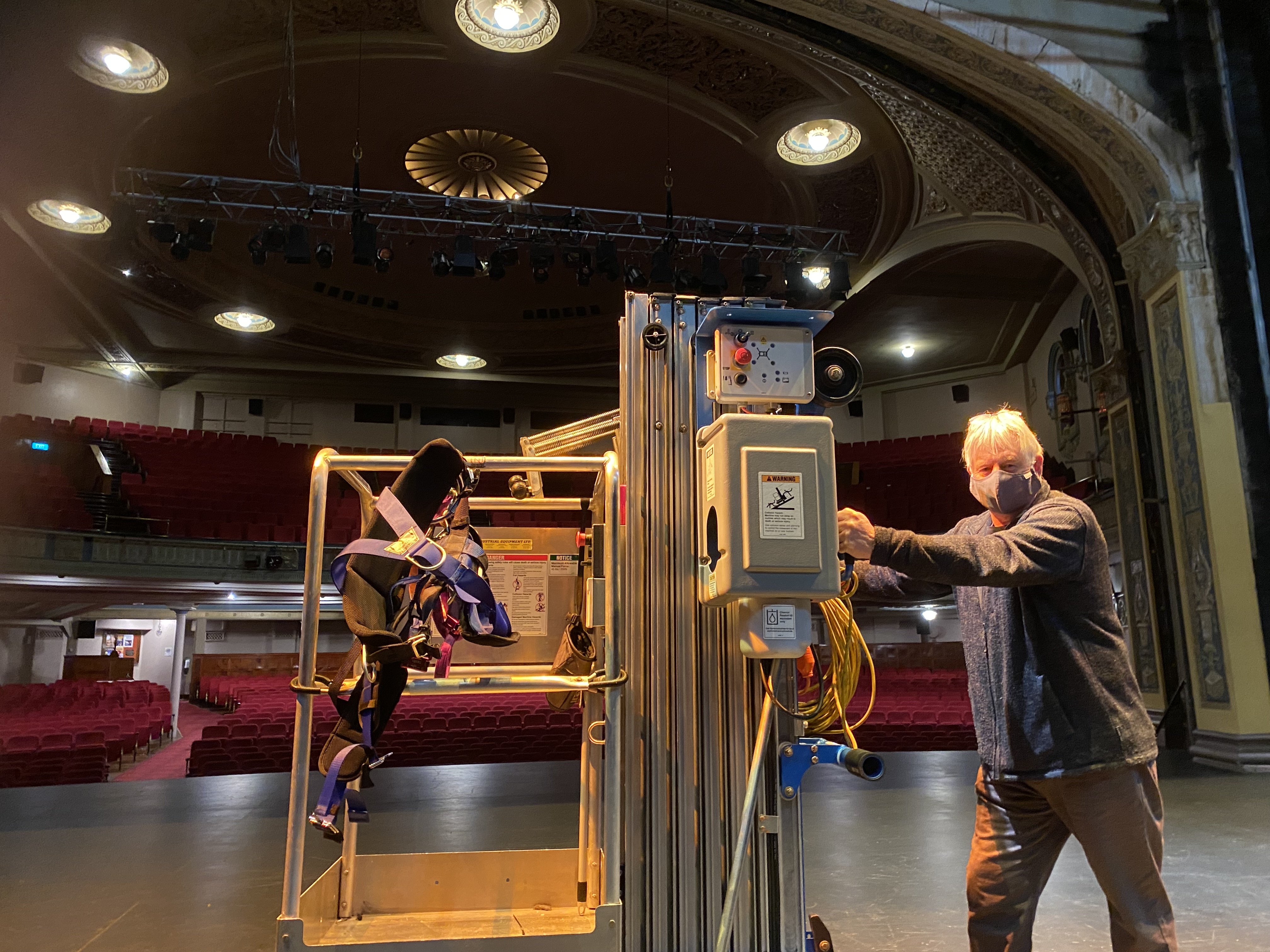
However, anxiety remains high for a sector which has suffered setback after setback during the Covid-19 pandemic and recently been hit by another wave of cancellations. The Star chief reporter Brenda Harwood reports.
High hopes for a busy summer for the arts in Dunedin have been dashed with the move to the Red traffic light setting, leaving many worried for the future.
The Government’s announcement on Wednesday of more than $110 million in additional funding support for the arts and culture sector will be a relief for many practitioners.
But a third year of struggle under pandemic conditions could be too much for some.
Regent Theatre director Sarah Anderson said times were bleak for not only artists, organisations and venues, but also for the small businesses which relied on shows for their livelihoods.
"With a 100 person limit, it just isn’t financially viable for us to have shows and events here.
"And that has a flow-on effect for crew and people working in staging, such as Southern Lights and Strawberry Sound, and others working behind the scenes across the sector," Ms Anderson said.
After losing 95% of its own revenue due to the pandemic, the Regent Theatre had been fortunate to maintain its small complement of staff using the Government wage subsidy.
"We have been lucky in that way, but it is very sad that the Regent 24 Hour Book Sale has had to be cancelled for the third time," she said.
The sale would have provided $60,000-$110,000 in income for the theatre and its loss was significant. Work was under way to find a creative solution.
"Of course everyone is doing it hard, but just because everyone is in the same boat doesn’t make it less difficult.
"There is a real feeling of gloom out there in spite of the sector’s inherent optimism."
However, there would be a lot of relief across the sector at the Government’s funding announcement, Ms Anderson said.
"It’s a great start, if long overdue."
Prospect Park Productions producer HJ Kilkelly said the organisation was facing difficult decisions over whether to go ahead with two shows scheduled for March.
"We are having that ethical discussion over whether we can go ahead, and whether we should go ahead under the circumstances," she said.
Prospect Park had been focusing on development work, which was fortunate, as it was less affected by restrictions.
"However, colleagues have lost six months of work and are facing very tough times.
"People are feeling quite hopeless and are questioning their ability to stay on in the game."
The Government’s extension of the Event Support Scheme was a good move, and assuring artists they would be paid "no matter what" was paramount.
The one-off $5000 payment looked good, on the face of it, but was not enough for artists to establish and sustain careers, Ms Kilkelly said.
"What is really needed is long-term support to open up the field to a wide range of people," she said.
"It's incredibly hard to sustain momentum and motivation when you're forever having to respond to the latest thing and fill out ongoing paperwork."
Dunedin Symphony Orchestra (DSO) general manager Philippa Harris welcomed the announcement of substantial Government support for the arts and culture sector as "good news".
"The sector continues to experience significant adverse effects as a result of the many variants of Covid-19, and up until now it is the additional Government support that has helped so many artists and arts organisations survive," Ms Harris said.
However, the DSO was looking for more detail on the funding criteria to assess whether the funding would be of help to the orchestra and individual musicians.
Under the Red setting, concerts were not financially viable for the DSO, so it would have to wait until the return to Orange to resume performing.
"Not only does this deprive our audiences, conductors, soloists and players of the experiences of live music, it also deprives the musicians of their income," she said.
The orchestra was now planning to start its 2022 concerts in June, she said.
The current situation had long-term implications for the viability of artists and arts organisations.
"If artists need to turn to other careers to earn a living, this will result in the loss of artistic skills, and [will also] affect the long-term wellbeing of society," she said.
A Dunedin City Council spokesman said council had been "very concerned" to see the impact of Omicron and the Red traffic light setting on the arts and events sectors.
The council had already taken the difficult decision to cancel key public events, including Waitangi Day commemoration, Chinese New Year celebrations, the inaugural Music in Parks event and the annual Sunday Sounds programme at the Dunedin Botanic Garden.
Beyond that, it continued to work closely with a range of organisations to support their events where possible.












